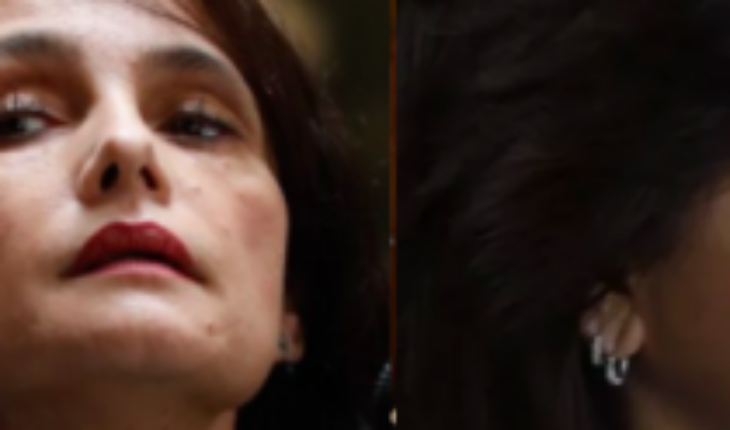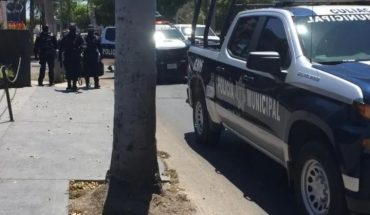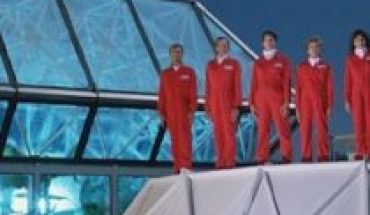President Gabriel Boric finally handed in his candidate for National Prosecutor, and it was not a controversial decision. Finally, it will be Marta Herrera who must appear next week before the Senate, amid speculation about the deployment of an alleged government strategy to leave in the hands of the Supreme Court the responsibility of the elaboration of a new quina, due to the legitimate doubts produced by the nomination of a person who, On the previous day, I did not achieve consensus of any kind.
Opposition senators speculated since last November that the Executive would propose Herrera to force the Supreme Court to send a new quina when his candidacy was rejected, which was later ruled out by Interior Minister Carolina Tohá. Finally, President Gabriel Boric chose José Morales, who obtained 31 of the 33 votes he needed, causing an unprecedented defeat for a Government since the installation of the Criminal Procedure Reform. This situation extended until Wednesday afternoon, through the sending of a new name to the Senate, while the eventual support that each nomination would have was sounded. Next Monday, meanwhile, the Senate’s Constitution, Legislation and Justice Committee will review the official letter sent by the Executive.
In this regard, the president of that body, Senator Matías Walker, announced that “we will summon the Constitution Commission on Monday, here in Valparaíso, from 11:00 a.m. to 1:00 p.m., since on Monday afternoon the session of the Plenary of the Upper House would take place, in order to ratify the appointment. I think the most important thing about this appearance is to ask candidate Marta Herrera what her plan is to face the increase in crime that we observe in the country, with violence associated with drug trafficking, organized crime, increased crimes such as homicides and kidnappings.”
From the Government, who is indicated as one of the main proponents of Herrera’s nomination, the Minister of the Segpres, Ana Lya Uriarte, said that “the President of the Republic has made a decision based on the background information in his possession, of course all those that the Supreme Court had before it, and Marta Herrera’s own presentation to the Supreme Court. All antecedents that account for a new vision and a new perspective in the conduct of the National Prosecutor’s Office, which of course requires a reinforcement, in order to combat organized crime, drug trafficking, illicit association and so many other crimes that are part of what citizens claim as of main interest. ”
It is worth mentioning that sources familiar with the process assure that Herrera’s surprise nomination responded to a strategy to test “if it happens” and, if not, have the possibility of endorsing political responsibility to the Supreme Court, from where they should elaborate a new quina. To understand this, they note that the Government, in fact, did not do any consultation work on that name within the Senate’s Constitution, Legislation and Justice Commission. With this background as data, the nomination is understood for some as a “third flag operation”, one in which the Government presents a name knowing that it will not pass, in order to repeat the process. In such circumstances, Article 15 of the Supreme Court could be applied -referring to the circumstances-, which would enable it to generate a different quina or, well, complete this, as the names fall, with others of filler.
In this regard, a leader of the ruling party clarified that for La Moneda the ideal candidate was Nayalet Mansilla, but assuming that there was very little possibility of support in the Upper House, they finally decided to support Herrera. They admit that there are some critical voices of some pro-government leaders for the fact that the government did not worry about the National Prosecutor’s issue beforehand, and that it sought out jurists before the Supreme Court vote. “They did not assess the importance,” they say, also considering the difficult relationship and coordination with the Public Ministry under Jorge Abbott.
In this regard, the senator and president of the Democratic Revolution (RD), Juan Ignacio Latorre, said that “it would be a very bad sign if the Senate again rejected the name proposed by the President of the Republic, that here there are cocks of power, or rather personal ambitions or egos on the part of some senates.Senators or caucuses that reject the name, because they do not harm the government but the institution. The Senate would look very bad. The National Prosecutor’s Office needs leadership for the next eight years,” he said.
Other sources of the ruling party, however, maintain that a new stumble will again be the responsibility of the minister of the Segpres, by supporting names that do not generate consensus and, what is worse, putting President Gabriel Boric at risk again, who is the one who pays the costs of the failed nominations.
In relation to this, pro-government sources warn that the votes would be divided, and there would be some key ones in the Constitution Commission, such as those of Senators Araya (PPD) and De Urresti (PS), who would be against Herrera.
On the side of the opposition, the situation is even more complex. The name of Marta Herrera from the beginning generated rejection in a good part of that sector, and the surprise nomination this afternoon – according to Senate sources – generated more resistance, because added to the lack of political support for that name, they believe that the Government again demonstrated improvisation in such an important appointment. One of these voices was that of Senator Manuel José Ossandón, who said in this regard: “It seems to me that it demonstrates the disorder that the government has and the lack of leadership.”
Follow us on





